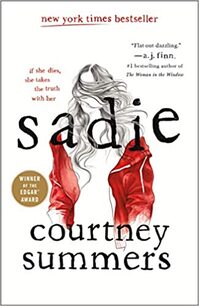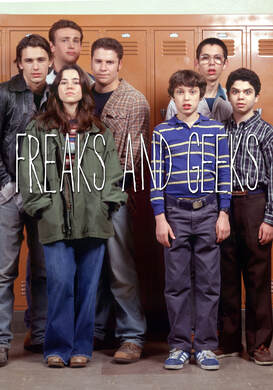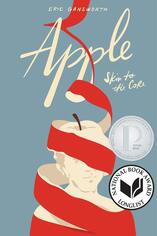Important to our discussion have been the contributions of a Youth Lens as put forward by Sarigianides, Petrone, and Lewis in Rethinking the "Adolescent" in Adolescent Literacy. If you are not familiar with this framework, it is one you should begin to consider as you read and consider the adolescent has presented in books, television, film and other narratives modes that present images of adolescents. In addition, Sarigianides, Petrone, and Lewis engage the topic of this framework in their free access article titled "How Re-thinking Adolescence Helps Re-Imagine the Teaching of English." They state: "By ignoring society’s constructions of adolescence, teachers implicitly suggest to secondary students that dominant and mostly demeaning views of adolescence present true expectations for youth." This leads us to wonder: what have we encountered lately that as affirmed or challenged traditional conceptions of adolescence? We invite you to weigh in as well.rue expectations for youth. HT T "ow Re-thinking Adolescence Helps Re-imagine the Teaching of English
| Sadie: A Novel by Courtney Summers I think about Sadie as nearly a perfect realistic YA novel. It fits firmly in the tradition of realistic YA fiction that many of us cut our teeth on 20 to 30 years ago. The parents are absent; the challenges must be met by Sadie alone. The plot revolves around the disappearance and murder of Sadie's younger sister several years earlier. Now, at 19, Sadie is ready to seek out and punish the person she believe is responsible for her sister's death. The author, Courtney Summers, borrows heavily from the format of the modern podcast. The story is placed, in part, as a portion of a podcast on missing girls. |
| Freaks and Greeks As I listened to the breakout sessions, I keep thinking about how unsatisfying the portrayal of teenagers tends to be in televison. It doesn't mean that I don't laugh from time to time, but I find the relationships, the plot, their emotions too overdrawn and sentimental. I just don't believe them. When I was a high school teacher and saw both Wayne's World and Fast Times At Ridgemont High, I was not entertained. The sources of the comic stereotypes were too real, too present in my actual classroom. I have often wondered if my students were trying so hard in many cases to live their lives according to the portraits they were constantly exposed to in and through a variety of sources. Over the last four weeks I have tried to think of television shows that I might recommend as capturing the adolescences I witnessed as a teacher for 25 years and, now, as a teacher educator. I am not quite ready to recommend it outright, but I am going to reinvestigate Freaks and Greeks. Maybe its brilliance is that it had such a short run. |
| Pen15 directed by Sam Zvibleman Pen15 is described by Hulu as "middle school as it really happened. Maya Erskine and Anna Konkle star in this adult comedy, playing versions of themselves as thirteen-year-old outcasts in the year 2000, surrounded by actual thirteen-year-olds, where the best day of your life can turn into your worst with the stroke of a gel pen." Not only does this series entertain, its characters engage with serious issues: bullying, divorce, consent, and substance abuse. It is fascinating to see Maya and Anna, as adults, interacting with the much-younger cast, making us as viewers forget that they have already surpassed adolescence and its supposed challenges. When watching, we can consider how each character represents adolescence, especially Anna and Maya: are they reliable adolescent narrators? Do they poke too much fun at adolescent growth? In what ways do they show the dedication, kindness, and creativity of all people, especially adolescents? |
| Apple: Skin to the Core by Eric Gansworth In this multigenre memoir-in-verse, Gansworth describes himself in his youth as he dealt with disrespect of Native American culture, his language and heritage, his grandparents' boarding school experiences, his feelings of loss, his relationship with his father, and his decision to go to college. Perhaps it is Gansworth's honesty about how he felt in his youth that endears him so much to his readers--they can trust his recollections of adolescence. With such honesty in mind, readers can take note of the many discoveries and decisions described by Gansworth, and marvel at the independent, creative, and dedicated adolescent depicted on the pages. We can ask ourselves how Native American youth--and their various challenges and victories--are portrayed in YA literature. |
| Almost Famous directed by Cameron Crowe My last selection is Almost Famous. I have often wondered if Crowe comes so close to accurate portrayals of adolescents because he began writing and observing as a teenager. He wrote the screenplay for Fast Times at Ridgemont High and then directed Say Anything and Singles--which could easily be considered New Adult if we use Sharon Kane's criteria from last week's post. What I find highly ironic about negative adult commentary on the appropriateness of such movies as Almost Famous and the others mentioned here as well as a host of other too numerous to catalogue is that these adults sound oblivious to their own experiences and somewhat ignorant of what their own teenagers or their friends are experiencing. |
What questions might we be asking to understand the current adolescent? My grandsons at 12 and 14 are certainly not experiencing adolescence in the same way I did. Oh sure, their desire to belong, have friends, explore their interests are similar, but the immediacy of social media is more present. I grew up in fairly good sized town, but we only had three tv channels and a local public station that I never watched. If I wanted to see something that was "taboo," I could, but it was probably a hunt. Well, things changes, yet they remain similar. Parents always want children to be better than they were, to persevere and "be good." We can ask ourselves: What do we expect of our children? What do we expect of our students? Do such expectations affirm our desires for "good" decisions as well as recognize the ways adolescents (and all people, for that matter) value independence, growth, and autonomy? As we continue to ask these questions, may we mirror the desires of Sarigianides, Lewis, and Petrone, who suggest that we "bring attention to how we are involved in perpetuating or interrupting this process, and how we might re-imagine other possibilities, particularly for working alongside youth in English language arts classrooms."






 RSS Feed
RSS Feed